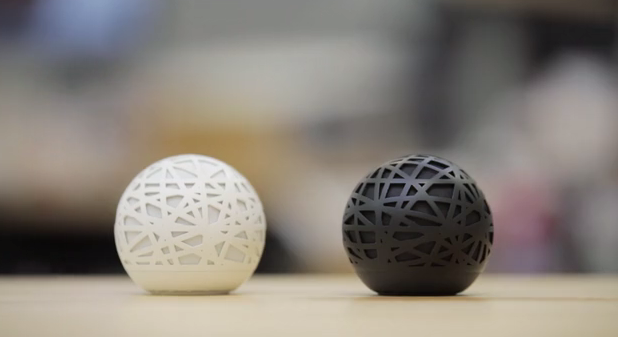Good Night, Sleep Tight: 'Sense' Sleep Tracker Monitors Bedroom Environment To Help Insomnia

The benefits of sleep are endless, ranging from being more alert to even more creative. Getting a good night’s sleep is imperative to restore our body and minds, especially since insufficient sleep has become a public health epidemic. To identify common bedroom sleep offenders, and have uninterrupted sleep, James Proud, CEO and founder of Hello Inc., created Sense, a polycarbonate orb that tracks our sleep patterns and everything that happens in the bedroom.
Ironically, Proud has used one of the biggest culprits of sleep — technology — to tackle the causes of sleep insomnia. Proud claims Sense is the first system to combine the insight of our sleep patterns with the data of the bedroom environment, including noise, light, temperature, humidity, and particles in the air, to track our sleep behavior. The product’s Kickstarter page, launched on Wednesday, reads: "Sense uses technology so we can take back our sleep. Without imposing itself. Without intrusion.”
Sleep is an integral part of our daily lives that determines how the rest of our day goes. When we’re sleeping, or attempting to sleep, we are not aware of what is going on or what is happening in our bedroom environment that could trigger insomnia. “[It’s] the one time that you’re not conscious for and you don’t know what happened,” Proud told Forbes.
For minimal distraction, Sense features a pillow clip-on, dubbed the “Sleep Pill,” and a bedside Sense device modeled after the Bird’s Nest stadium in Beijing. The “Sleep Pill” tracks and sends movement information to Sense, while it takes in light, sound, temperature, and allergen particle information with its built-in sensors. The product also has WiFi and Bluetooth capabilities to communicate with mobile devices and the Web to provide feedback and a sleep score — from zero to 100 — to judge how well we’ve slept during the night.
“We started playing about with experimenting with some stuff with wearables, and more importantly non-invasive ways of gathering data, and how to make products that people don’t have to think about and products that don’t get in the way,” Proud told BuzzFeed. “You go from not knowing about stuff about your body to knowing stuff about your body. But the magic of this stuff is when it disappears, when you don’t have to think about it, to charge it or press buttons — that specifically becomes really useful. Everything we’ve thought about has been, how do we achieve that.”
Although Sense isn’t the first sleep tracker, as many fitness trackers like Jawbone UP include sleep tracking, it is minimally invasive. The first wave of sleep trackers helped determine what people were willing to wear, and now Sense is introduced in a climate where it can better cater to its sleep deprived clientele. This is especially true since there is a strong curiosity for sleep information since most of us are not getting enough of it.
Dr. David Volpi, an advisor to Hello Inc., told Forbes the device in its current form would not replace FDA-approved sleep test kits used by patients with medical sleep problems. “I anticipate using it to follow up on patients,” Volpi said. “A lot of patients that come to see me and don’t have a medical issue, but still need to have their sleep monitored.”
According to the Centers for Disease Control and Prevention, 48 percent of Americans report insomnia occasionally. People with insomnia have difficulty falling asleep or staying asleep, even when a person has the chance to do so. People with insomnia can feel dissatisfied with their sleep, and usually experience fatigue, low energy, difficulty concentrating, among other things.



























